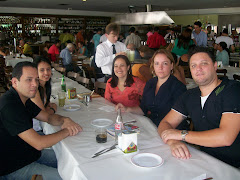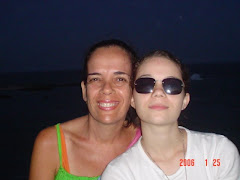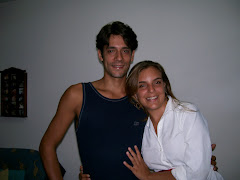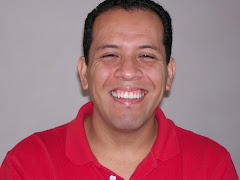Who’s Behind the Economic Collapse?
By Cliff Kincaid
Don’t voters have the right to know whether these illegal activities were being conducted for political purposes?
Joe Biden made headlines by talking about a “generated crisis” for a President Obama. But is the current financial meltdown another “generated crisis?” Considering the problems in the economy, including too much federal debt, too much spending and easy credit, which have been with us for years, why did this crisis suddenly occur only six weeks before the election?
And is it just a coincidence that it occurred at a time when John McCain was leading in the national public opinion polls and appeared to be on his way to a November 4 election victory?
The crisis was man-made. It is a fact that President Bush’s Treasury Secretary Henry Paulson, who worked for a Democratic firm, Goldman Sachs, and has very close ties to Communist China, is the one who convinced Bush to demand hundreds of billions of bailout dollars from Congress.
This is when McCain began falling in the polls. That’s apparently because McCain, like Bush, is a Republican, and he has been blamed by Obama and the Democrats for the Republican policies that are said to have produced this crisis. This charge is debatable, but it has proven to be effective, with the cooperation of the major media.
Part of the problem, of course, was of McCain’s own making. He voted for the $700-billion plan after flirting with the House conservatives opposing it. This was a major error on his part. He missed a critical opportunity to take on the incumbent President of his own party, Obama, the Democrats, and Wall Street interests.
The timing was important. If you examine the polling trend (see page two of this PDF document from Karl Rove & Company), one can see that McCain was moving ahead of Obama by mid-September. One poll, the Rasmussen poll, had McCain over Obama every day from September 12-17. McCain evened up the race again on September 23, after Obama had taken a lead, but it has been Obama ever since.
Clearly, the controversy over the legislative “bailout” or “rescue” for Wall Street, which emerged in a big way on September 18, changed the dynamics of the presidential race. It has hugely benefited Obama by making the economy take precedence over Obama’s controversial associates, pro-socialist views, or lack of a background and security check.
The growing suspicion that the financial meltdown is a “generated crisis” has been fed by statements from President Bush himself that illegal financial activities were taking place. On September 18, when he made a public statement about the growing economic problems, Bush announced that the Securities and Exchange Commission (SEC) was stepping up its enforcement actions “against illegal market manipulation.”
By whom or what? The President didn’t say.
The next day, September 19, Bush appeared in the Rose Garden with Paulson, SEC chairman Christopher Cox, and Federal Reserve chairman Ben Bernanke. Bush declared, “The SEC is also requiring certain investors to disclose their short selling, and has launched rigorous enforcement actions to detect fraud and manipulation in the market. Anyone engaging in illegal financial transactions will be caught and persecuted [sic].” Again, what was Bush talking about?
For its part, on the same day, the SEC announced “a sweeping expansion of its ongoing investigation into possible market manipulation in the securities of certain financial institutions.” The SEC declared, “Hedge fund managers, broker-dealers, and institutional investors with significant trading activity in financial issuers or positions in credit default swaps will be required, under oath, to disclose those positions to the Commission and provide certain other information.”
But no details were provided. Don’t voters have the right to know whether these illegal activities were being conducted for political purposes?
Almost as secretive were Treasury Secretary Paulson’s maneuvers. He produced a quick three-page proposal to make himself a virtual financial dictator without judicial oversight or review. Then just as quickly it was secretly altered so that he would have the authority to bail out banks in China and other foreign countries.
For those interested in some of the fascinating details about Paulson’s extremely close relationship with China, which may have provoked the financial crisis and stands to benefit from it, the October issue of Bloomberg Markets is a good place to start. It notes that Paulson was sworn in as secretary in July 2006 and that by September he was announcing “creation of the first U.S.-China Strategic Economic Dialogue.” Paulson, the magazine reports, has a relationship with Chinese leaders and has traveled to China at least 70 times in his career. It reports that he personally had $25 million worth of holdings in a Goldman Sachs fund whose sole asset was a stake in the Industrial & Commercial Bank of China.
Goldman Sachs, a “full-service global investment banking and securities firm,” is “the leading underwriter of Chinese equity securities and M&A [merger and acquisition] advisor in China,” its website declares.
“Managing the U.S. relationship with China is an increasingly important part of the Treasury secretary’s job,” Bloomberg Markets says. “During the Fannie and Freddie crisis, Paulson used his credibility with Chinese leaders to reassure them that the U.S. mortgage companies weren’t in jeopardy.” Paulson is quoted as saying that “I clearly talked with the Chinese through this. They’ve worked with me enough that they knew I wouldn’t say it unless I believed it.”
Why was this necessary? Chinese institutions own more than $30 billion of Fannie Mae and Freddie Mac paper, the magazine reports.
On September 7, of course, the U.S. Government, under Paulson’s direction, took control of Fannie Mae and Freddie Mac, putting the U.S. taxpayers on the hook for $5 trillion of mortgages. But Paulson’s statement made no mention of the Chinese investments. Instead, he talked about protecting financial markets and U.S. taxpayers.
About a week and a half later the demands came for more taxpayer money for Wall Street, and the national economic crisis was well underway.
Rep. Scott Garrett, Republican of New Jersey, is leading the Congressional effort to find out how Paulson’s proposal was developed and by whom. He wants to know what went on behind “closed conference room doors” in the U.S. Government.
Equally significant, on September 23, Paulson’s former firm, Goldman-Sachs, received an infusion of $5 billion from Warren Buffett, a major Obama financial backer and booster.
The former Goldman Sachs CEO “does not act or sound much like a conservative Republican to the GOP remnant at the Treasury,” noted Robert Novak in an October 2007 column. Novak reported that Paulson had “marched to his own drummer” by naming Eric Mindich, chairman of Eton Park Capital Management, to head the Asset Managers’ Committee of the President’s Working Group on Financial Markets. “A former Goldman Sachs colleague of Paulson’s, Mindich is a top-level Democratic fundraiser,” Novak noted. “He was in Sen. John Kerry’s inner circle for the 2004 presidential campaign and backs Sen. Barack Obama for 2008.”
Then, during the current crisis, Paulson appointed another former Goldman Sachs banker, Neel Kashkari, to run the new “Office of Financial Stability” and buy bad loans and distressed securities.
Information from the Center for Responsive Politics identifies Goldman Sachs as a “strongly Democratic” firm, having contributed 73 percent of their almost $5 million in 2008 election cycle contributions to Democrats.
Some liberals understand the connection between Goldman Sachs and Obama. “Obama’s number one bundler is Goldman Sachs,” notes John R. MacArthur, publisher of Harper’s Magazine, in a release from the “progressive” group calling itself the Institute for Public Accuracy. He was referring to how money from the firm is packaged for the Obama campaign.
“In his book, ‘The Audacity of Hope,’ Obama talks about how much he likes investment bankers, how bright and liberal they are,” says MacArthur. He believes that Obama is a “socialist” only in the sense that he, like Bush and McCain, supports socialism for the rich through the Wall Street bailout.
Socialist or not, Obama is clearly the firm’s favorite in the presidential race.
Lynn Sweet of the Chicago Tribune recently discovered that, on May 3, 2007, Obama had attended an event at the Museum of Modern Art in Manhattan “that was not on his public schedule and is only now surfacing―a private dinner for Goldman Sachs traders with a discussion on issues moderated for the Wall Street firm by NBC’s Tom Brokaw”―the moderator of the second presidential debate.
Her column notes other Obama campaign connections to Goldman Sachs and mentions that Bloomberg had reported that Obama addressed the Goldman’s annual partners meeting 2006 in Chicago.
It is not known, of course, what kind of illegal financial activities may have contributed to the current crisis. But based on what has been publicly said by the President and the SEC, the culprits could possibly include operators of the controversial, mysterious and secretive financial vehicles known as hedge funds.
A hedge fund operator such as George Soros, who was convicted of insider trading in France, is known to make money from the collapse of national economies and currencies. Labeled “The Man who broke the Bank of England” because of his financial activities against the British currency, he is said to be on a witness list of hedge fund operators that will be called to testify before Congress next month―probably after the election.
One wonders if the Democrats controlling Congress will want to investigate or even aggressively question the multi-billionaire. It is significant, as I noted in a January column, that Soros pours millions of dollars into the Democratic Party, its front groups and candidates. But his agenda goes far beyond making himself rich. He provides funding for causes ranging from marijuana legalization to rights for immigrants, criminals, and prostitutes.
The same column I wrote noted that the Wall Street Journal in January had reported that hedge fund operator John Paulson received a visit from Soros, who is also a public supporter of and contributor to the Obama campaign, after Paulson had made about $4 billion betting on a housing market collapse. Soros wanted to know how he had done it. But Soros wouldn’t talk to the Journal about his meeting with Paulson. Why?
Soros gets away with a “no-comment” because he pours money into journalism organizations, including the Center for Investigative Reporting, the Fund for Investigative Journalism, and Investigative Reporters & Editors, thereby guaranteeing that they won’t investigate how and where he gets his money. Isn’t this convenient?
A recent example of this conflict of interest came in Bill Moyers’ October 10 interview of Soros on the Public Broadcasting Service. Moyers lavished Soros with praise, saying that he is “one of the world’s best known and successful investors, making billions in times of boom or bust.” Moyers also mentioned Soros’s new book, The New Paradigm for Financial Markets: The Credit Crisis of 2008 and What It Means.
Moyers said that, in the interest of “full disclosure,” he should reveal that that he, Moyers, had served on the board of Soros’s Open Society Institute. Moyers laughingly insisted that was a non-political position on his part.
Not once did Moyers question Soros about his reported discussions with John Paulson. Not once did he question whether Soros’s financial activities had facilitated or precipitated the current financial crisis that he writes about in his book.
Soros insists that one contributing factor to the crisis was the lack of financial regulation. But he takes advantage of the lack of those regulations. Indeed, as I reported back in 2005, one Soros company was a member of the Managed Funds Association, which describes itself as “the global voice for the hedge fund industry” and was actively fighting an SEC proposal to impose more regulation on hedge-fund managers.
The ranking of top hedge fund earners for 2007 shows John Paulson of Paulson & Co. at $3.7 billion and George Soros of Soros Fund Management at $2.9 billion.
Is there anybody in the media willing to question Soros about how he made that money? And whether it came at the expense of the American people?
Cliff Kincaid is the Editor of the AIM Report and can be reached at cliff.kincaid@aim.org


















































































































